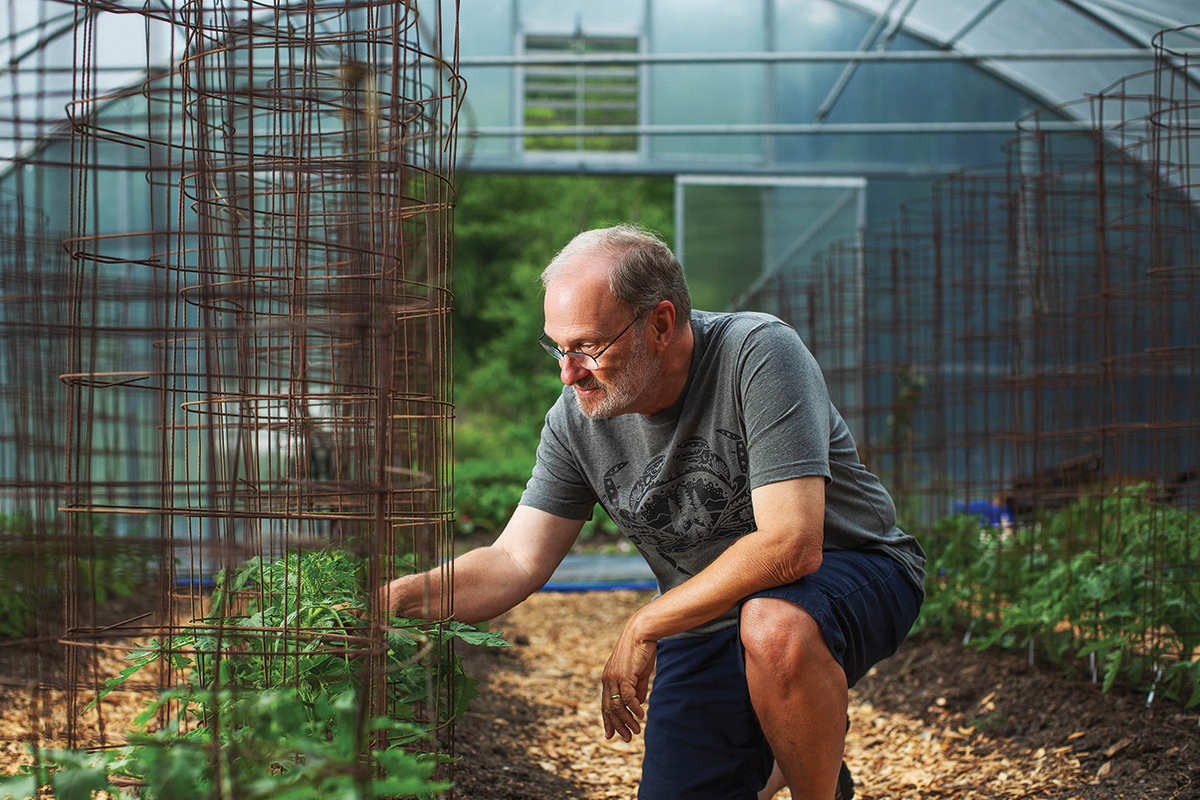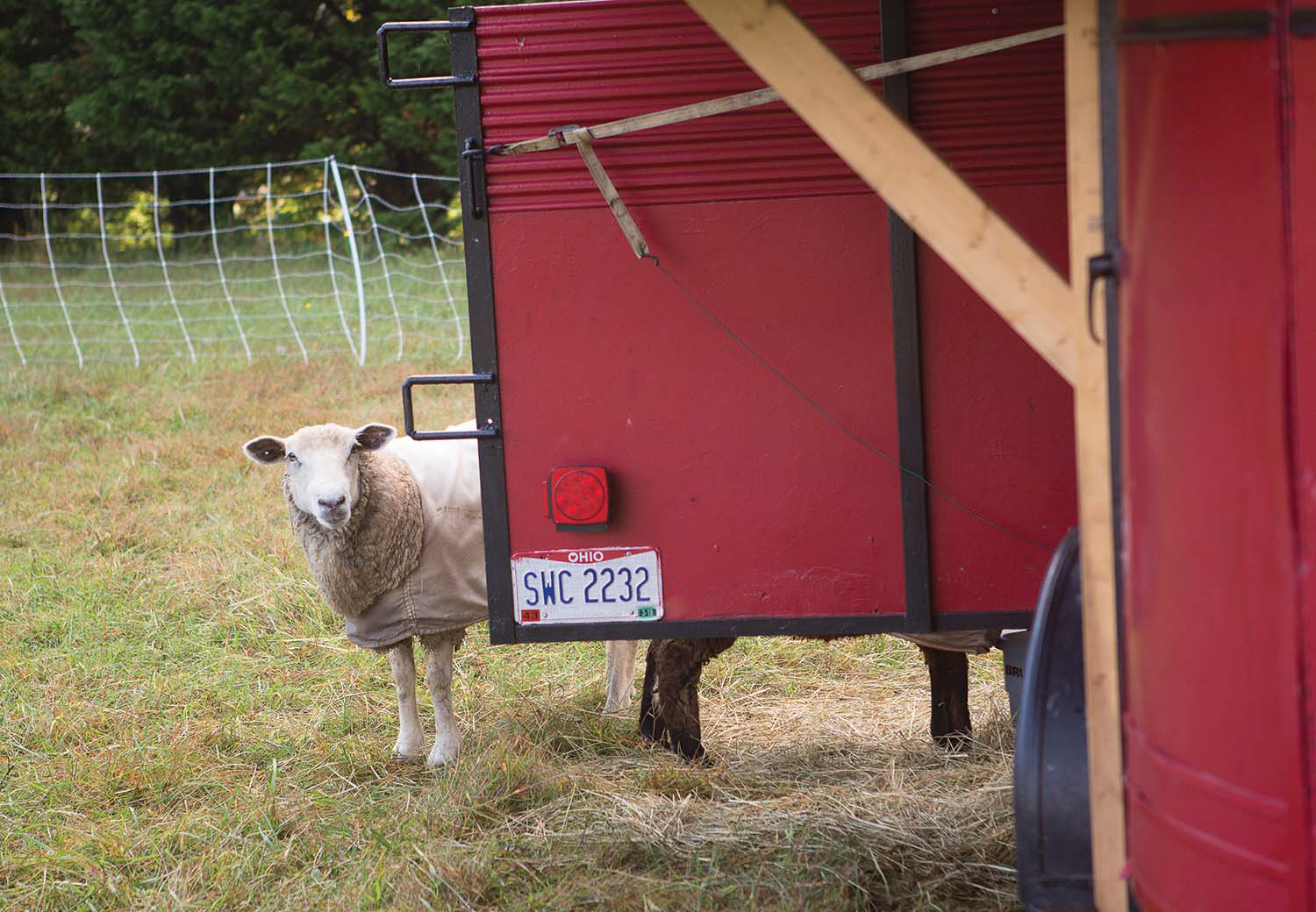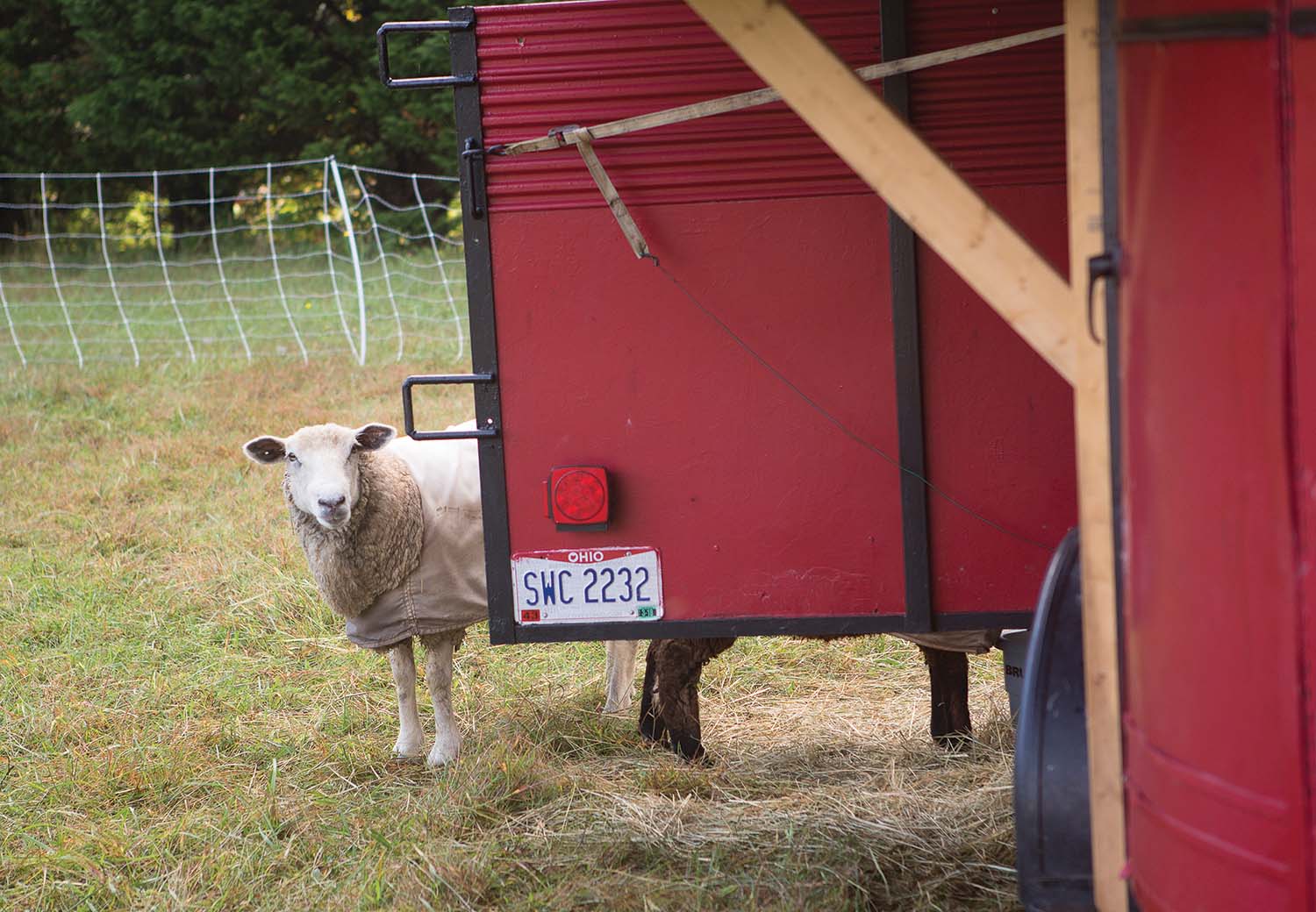
Garry Segal (in glasses) helps Henderson County vets navigate a motorcycle-therapy program.
Motorcycle riding is inherently risky. In some emergency rooms, choppers and bobbers are nicknamed “donorcycles” because a significant percentage of motorcyclists end up as organ donors after fatal accidents. But a Hendersonville-based nonprofit organization, the “Let’s Twist Again Foundation,” is urging military veterans in rehab centers to accelerate their healing by taking the controls of a motorcycle and letting it rev.
Garry Segal, director of the foundation’s Motorcycle Therapy program, read about pro riders using virtual motorcycle simulators to sharpen their skills indoors. He wondered if the same technology could be applied therapeutically.
“My mission then,” he says, “was to get real motorcycle controls and a virtual riding experience to someone in a hospital bed or wheelchair.” Segal made modifications to a SMARTrainer simulator that was already in use by the Pentagon to help teach motorcycling skills to service members. Then he outlined a program, got it approved by the Motorcycle Safety Foundation, and began volunteering. He now makes weekly visits with his virtual motorcycle to the NC State Veterans Home in Black Mountain, Universal Health Care in Fletcher, and the Spring Arbor residential nursing facility in Hendersonville.
“Our residents love the program,” says Kim Hocking, an occupational therapist at Universal Health Care. “It’s fun and beneficial, and from a therapy standpoint, it can be helpful with eye-hand coordination, visual-perception skills, grip strength, and sitting balance.”
The fun factor can be equally therapeutic, as it inspires patients to interact socially in a positive way. For many of the military veterans enrolled in motorcycle therapy, the experience satisfies a desire familiar to anyone who loves motorcycles and hankers for the freedom and excitement of opening up the throttle on a winding road. The program delivers those thrills in a way that’s so realistic it provides practically everything except bugs against the goggles — including the feel of almost going end-over-end by leaning on the front brake a little too hard (minus the actual risk).
“It puts me in a good frame of mind,” says United States Air Force veteran Sgt. Harry McCurry — a resident of Universal Health Care who’s undergoing occupational therapy. “Especially when you hear the engine get loud and you watch the scenery go by. The motorcycle program gives you time to focus on the ride, like you are going on a trip instead of being here in a hospital. The exercise it gives my hands with all the throttle twisting and brake squeezing helps with my neuropathy, too.”
Cultivating Plants and Camaraderie
Another Hendersonville nonprofit, Veterans Healing Farm, also takes a hands-on approach to therapy, but instead of using technology, its initiatives are all about getting back to nature and digging around in the dirt. Vets grow produce, raise farm animals, and also cultivate meaningful friendships. Among its yield, the farm boasts an impressive hops crop.
Bold Life last covered the Healing Farm in midsummer. Reporting on the overall harvest, Nicole Mahshie — who operates the farm with her horticulturist husband, U.S. Airman John Mahshie — says: “We had a great gardening season this year. We had around 60 members involved and some of the best yields and largest tomatoes we have ever grown.” This coming summer, the farm will host veteran camping retreats, with plans afoot for a new garden plot that will supply local food banks and shelters that serve low-income or homeless veterans.
The Best of Both Worlds
Many practitioners of these so-called “alternative” therapies prefer the term “complementary” therapy, points out Grace Wormwood, B.A., L.M.B.T. “They don’t perceive themselves as [offering] replacement for conventional medicine, but work[ing] right alongside conventional treatment.”
Wormwood, a CranioSacral therapist at Asheville’s Center for Holistic Medicine, has been using CranioSacral therapy (CST) for 14 years to treat conditions including Post Traumatic Stress Disorder (PTSD), experienced by many veterans. CST focuses on the membranes and fluid that surround, protect, and nourish the brain and spinal cord. The CST therapist will use a light physical touch to feel for ease of motion and rhythm of the cerebrospinal fluid that pulses around the brain and spinal cord. Gentle techniques are then used to release any blocks or constrictions, improving function and stimulating the body’s natural ability to self-correct.
“Many of us in the holistic health-care field would like to help patients reduce their dependency on medications and medical interventions, but in a gradual manner,” says Wormwood. “In my mind, this is the best use of modern medicine: one that combines all that we know in the conventional arena with all that we have access to in the holistic arena.”
Wormwood also believes that a significant movement toward blending the two approaches of conventional and alternative therapies is underway, bringing together the best of both medical approaches. Some alt-therapies are cumulatively much less expensive than their mainstream counterparts. And a higher quality of life, not an instant fix, is the general goal.
That balance, says Wormwood, “is going to continue to grow.”
Let’s Twist Again Foundation Visit twistagainfoundation.com or email info@twistagainfoundation.com for more information.



